10 Most Powerful SEO Tools Every Affiliate Marketer Needs to Boost Rankings and Earnings

A few years ago, I thought I had learned and mastered SEO well. I would spend a lot of time creating what I thought was great content, add some keywords, publish it, and then wait for the visitors to come.
How did it go instead? Crickets. No rankings, no clicks, no commissions. It felt like I was shouting with no one listening while my competitors easily dominated the search results.
That’s when I understood that doing well in affiliate marketing isn’t only about creating good content. It’s about using the right SEO tools to show your content to the right audience. Google’s algorithms have improved, the competition is tough, and trying to guess your way through it won’t work anymore.
The good news is that I’ve done the trial and error for you. After trying many SEO tools, I’ve found the 10 best SEO Tools Every Affiliate Marketer Needs that will really make a difference.
If you’re fed up with your content being ignored while others make money, this guide is for you. Let’s get started and give you the tools you need to succeed in SEO.
Key Takeaways
- SEO success isn’t just about great content; you also need the right tools to rank, attract traffic, and increase earnings.
- Keyword research tools like SEMrush and Ahrefs help you find profitable keywords that drive targeted visitors to your site.
- On-page and technical SEO tools ensure your website is optimized for speed, mobile-friendliness, and search engine visibility.
- Backlink analysis tools give you an edge by uncovering high-quality link opportunities that improve rankings.
- Analytics and tracking tools like Google Search Console and GA4 help you measure performance, refine strategies, and maximize affiliate commissions.
10 Most Powerful SEO Tools Every Affiliate Marketer Needs
These tools will help you improve your ranking, bring in the right visitors, and increase your affiliate earnings without wasting time wondering what will work.
1. SEMrush – The All-in-One SEO Powerhouse
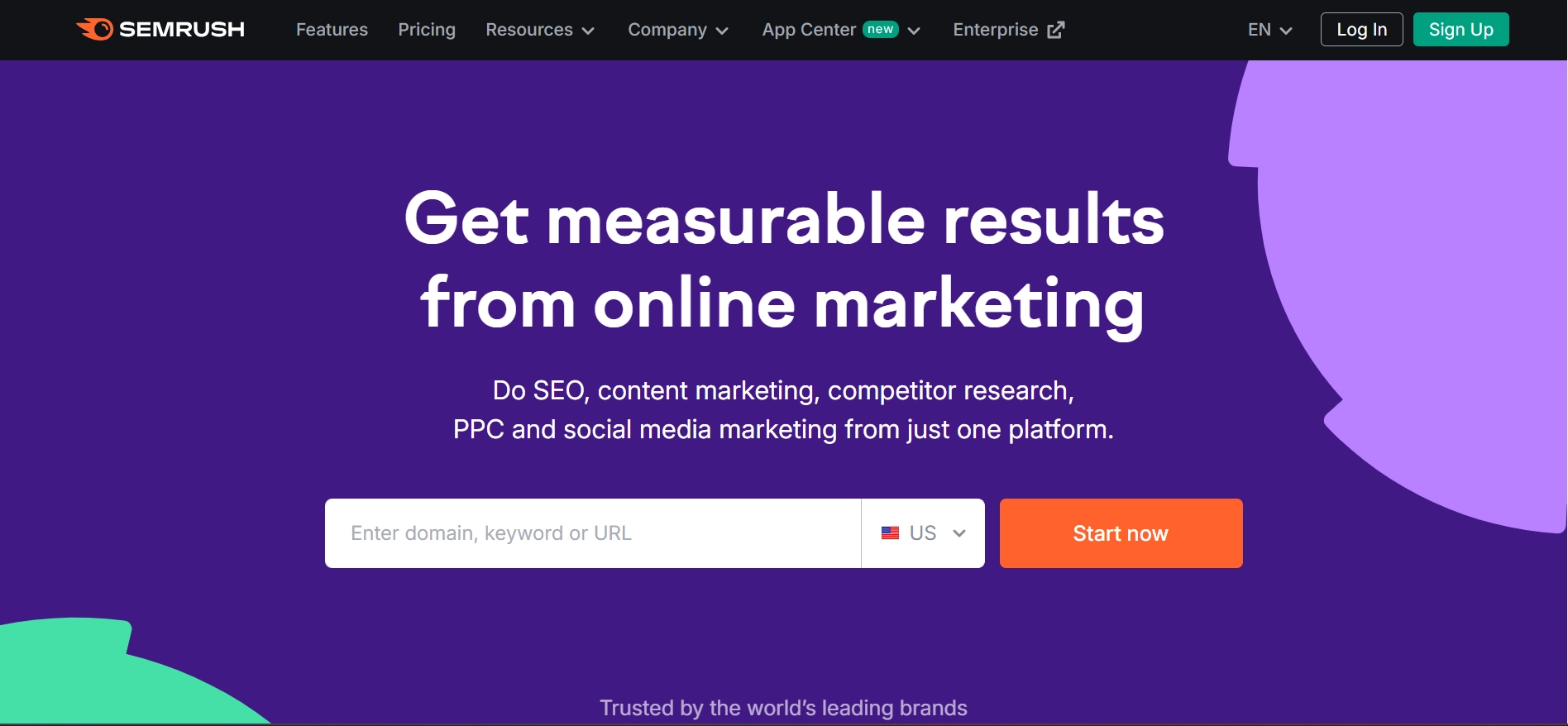
Using SEMrush in SEO gives you similar advantages to an unfair situation. The platform serves as your exclusive entry to observe which marketing methods give your competitors their success.
SEMrush takes the guesswork out of SEO. It breaks down exactly why a site is ranking showing its top keywords, backlink sources, and content strategies.
Instead of blindly guessing what works, you get a clear roadmap. You can see which search terms bring in traffic, where competitors are getting their backlinks, and how they structure their content. These insights make it easier to refine your own strategy, target the right keywords, and build stronger links.
If you want to understand what’s driving success in your niche, SEMrush gives you the full picture.
- Best for: Keyword research, competitor analysis, and site audits
- Pricing: Starts at $129.95/month (yes, it’s an investment, but it’s worth it)
Key Features & Benefits:
- Deep keyword research to find high-ranking opportunities
- Competitor analysis to uncover their top-performing pages
- Backlink insights to build a stronger authority site
- Comprehensive site audits to fix SEO issues before they hurt rankings
If you’re serious about affiliate marketing and SEO, SEMrush isn’t just helpful — it’s essential.
2. Ahrefs – The Ultimate Backlink and Competitor Spy Tool

If SEMrush is a Swiss Army knife, Ahrefs is a high-powered telescope that lets you zoom in on your competitors’ SEO moves.
I once found a competitor pulling in tons of traffic from forum backlinks. With Ahrefs, I tracked where they posted, saw which threads drove clicks, and joined the conversations. Instead of spamming links, I added real value; answering questions, sharing insights, and building trust. Before long, my traffic started climbing.
Apart from showing you data, Ahrefs also helps you spot real opportunities to grow.
- Best for: Backlink analysis, keyword research, and content planning
- Pricing: Starts at $99/month
Key Features and Benefits
- Deep backlink analysis to identify linking opportunities and strengthen authority
- Powerful keyword research to discover profitable, low-competition keywords
- Competitor analysis to uncover their best-performing pages and ranking strategies
- Site audit tools to detect and fix technical SEO issues
- Rank tracking to monitor keyword positions and optimize for better results
3. Google Search Console – Your SEO Health Check Tool
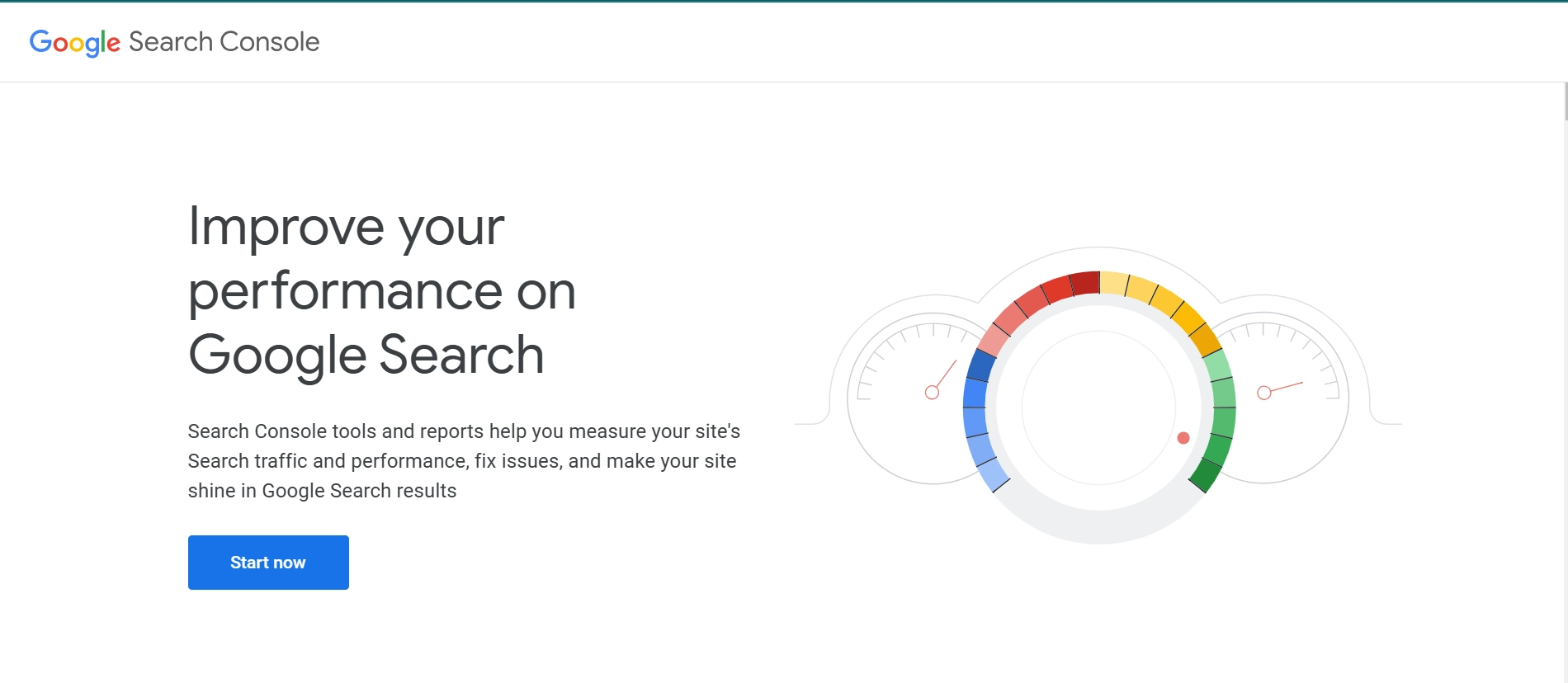
If you’re not using Google Search Console, you’re flying blind. It shows how Google sees your site, what’s ranking, and what needs fixing.
I once noticed some of my pages were showing up in search results but getting almost no clicks. They had thousands of impressions, but users weren’t biting. The problem? My headlines weren’t compelling enough.
I reworked them to be clearer, more engaging and keyword-focused. Almost overnight, my click-through rate doubled. It was a simple fix, but I would’ve never caught it without Google Search Console. It turns raw data into real insights that help you grow.
- Best for: Monitoring how your site performs on Google
- Pricing: 100% free (and absolutely essential)
Key Features and Benefits
- Tracks how your site appears in Google search results and which keywords drive traffic
- Helps fix indexing issues so your pages get properly ranked
- Provides insights on clicks, impressions, and search performance over time
- Identifies pages with low click-through rates so you can optimize titles and meta descriptions
- 100% free tool straight from Google, making it a must-have for every website owner
4. Surfer SEO – AI-Powered Content Optimization
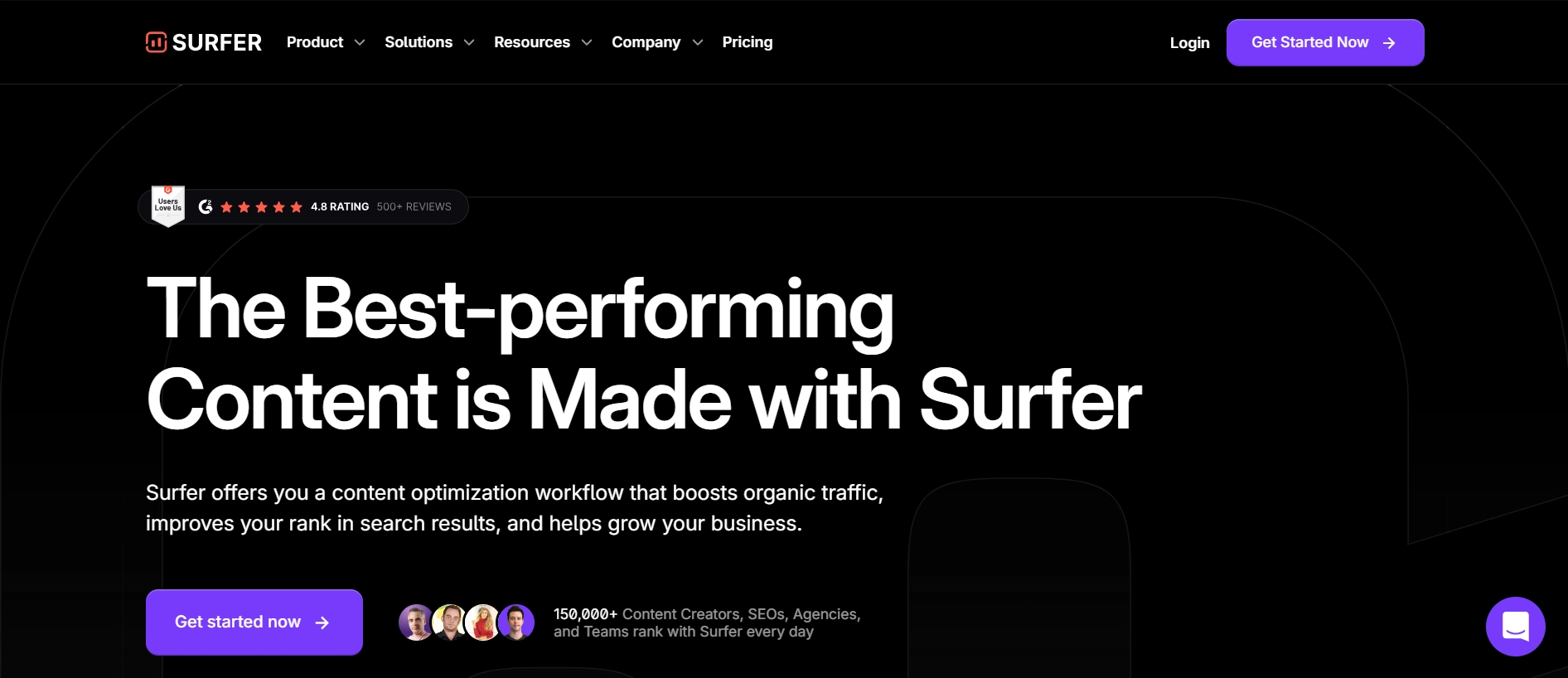
Have you ever wondered why some articles hit page one while others with similar content get buried? Surfer SEO gives you a clear blueprint to compete.
I’ve seen blog posts stuck on page five shoot up to page one just by adjusting them based on Surfer’s recommendations. It analyzes top-ranking pages and shows exactly what you’re missing; whether it’s word count, keyword usage, or missing topics. Instead of guessing, you get data-backed insights that actually move the needle.
- Best for: Writing SEO-friendly content that ranks
- Pricing: Starts at $49/month
Key Features and Benefits
- Analyzes top-ranking pages and gives data-driven content recommendations
- Helps you optimize word count, keyword usage, and structure for better rankings
- Provides a content score so you know how well your page is optimized
- Compares your content against competitors and suggests improvements
- Speeds up the ranking process by fine-tuning on-page SEO
5. Ubersuggest – The Budget-Friendly SEO Starter Pack
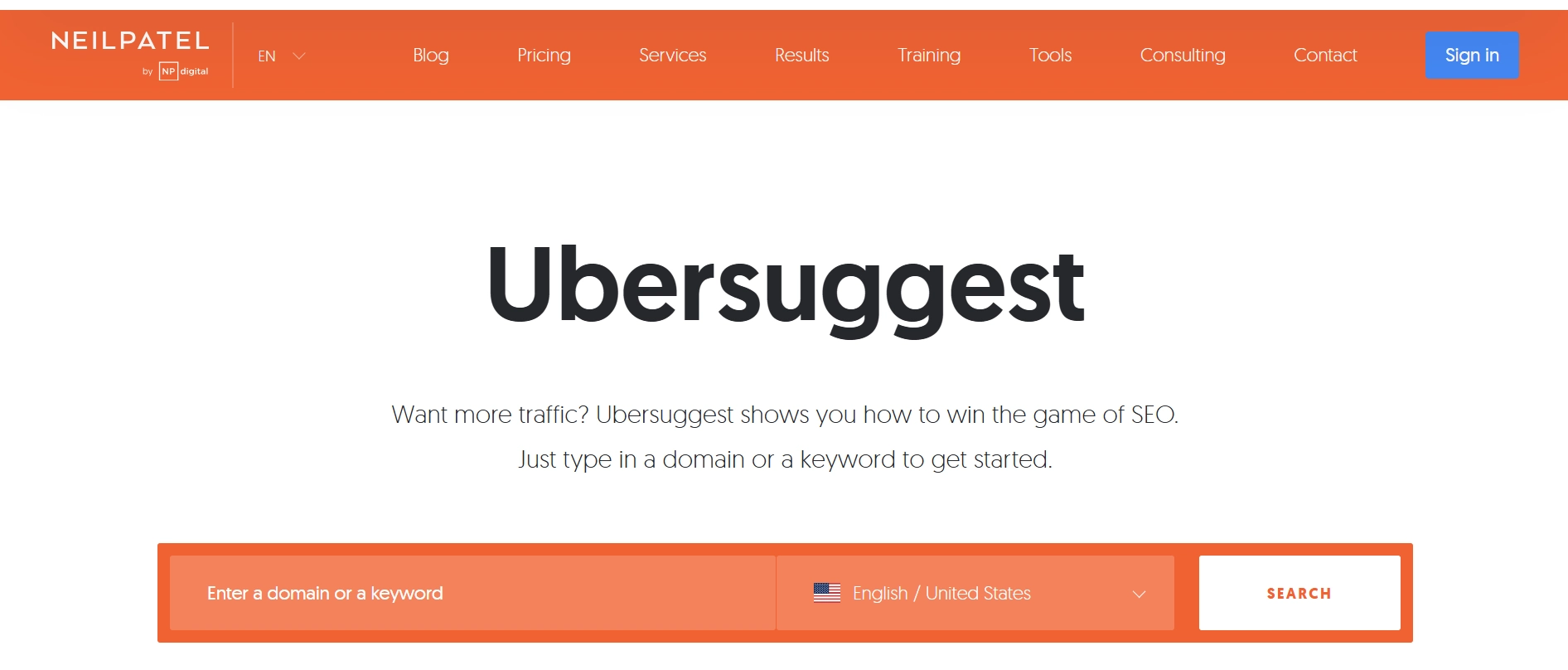
Not ready to spend big on SEMrush or Ahrefs? Ubersuggest, built by Neil Patel, gives you keyword ideas, backlink data, and traffic estimates with a friendly budget.
It doesn’t go as deep as premium tools, but it’s a solid starting point for beginners. You can see which keywords have high search volume, find content ideas, and even check where your competitors are getting backlinks.
When I first started, I wasn’t ready to invest in expensive SEO tools. Ubersuggest gave me just enough insights to find ranking opportunities, optimize my content, and grow my traffic without spending a fortune. If you’re new to SEO, it’s a great way to get your feet wet.
- Best for: Affordable keyword research and SEO insights
- Pricing: Free (limited searches) or $29/month
Key Features and Benefits
- Simple and budget-friendly keyword research tool for beginners
- Provides keyword ideas, search volume, and competition data
- Includes basic backlink analysis to find link-building opportunities
- Offers site audit features to spot SEO issues
- Great for those who need quick SEO insights without a steep learning curve
6. Moz Pro – The SEO Tool with the Trusted DA Metric
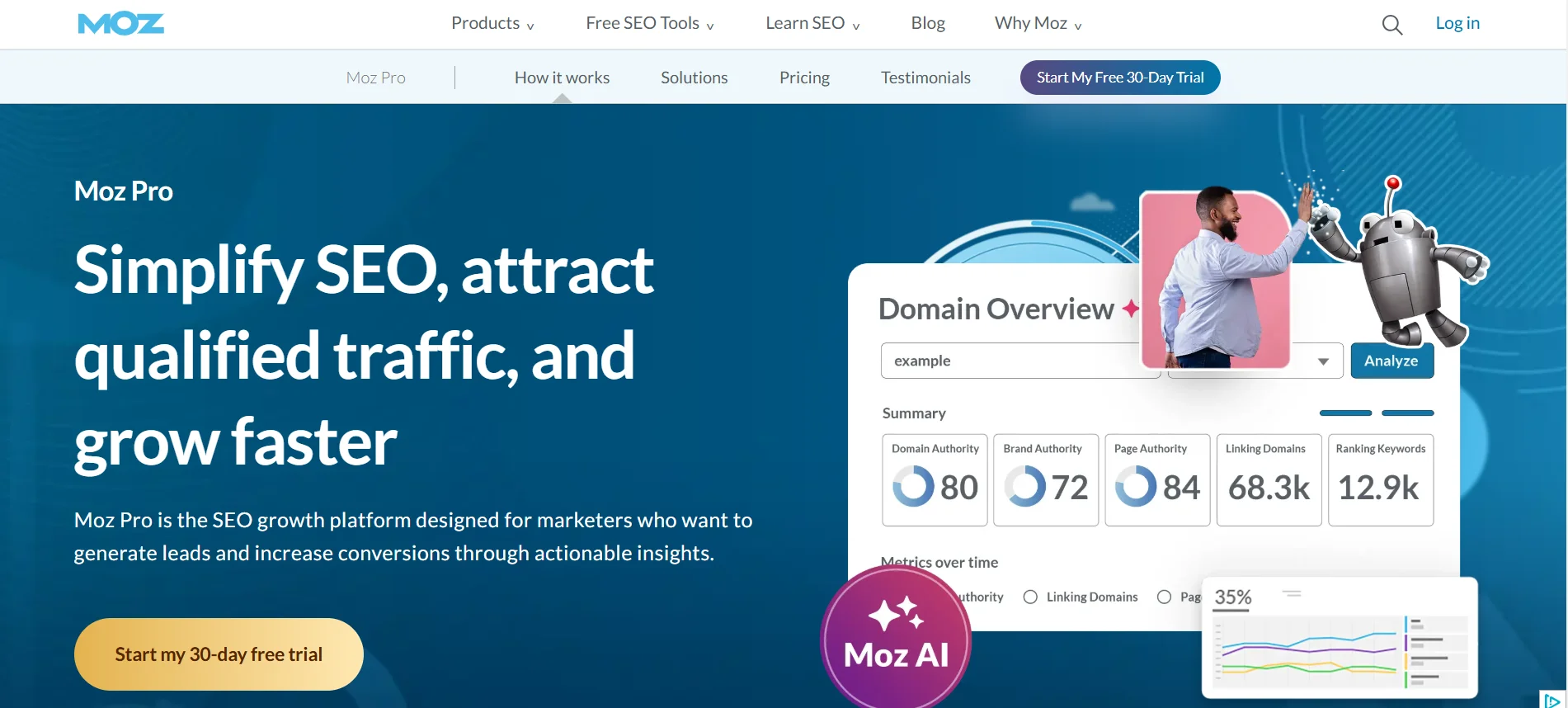
Moz Pro might not have the flash of SEMrush or Ahrefs, but it’s rock solid for tracking domain authority and keyword rankings. Their DA (Domain Authority) metric is widely trusted in the SEO world, making it a great tool for checking site strength.
- Best for: Domain authority tracking and keyword research
- Pricing: Starts at $99/month
Key Features and Benefits
- Helps you track your site’s Domain Authority (DA) so you know where you stand against competitors
- Gives you solid keyword research with difficulty scores to help you target the right terms
- Shows who’s linking to you (and your competitors) so you can build stronger backlinks
- Runs site audits to catch and fix SEO problems before they hurt your rankings
- Super easy to use, making it a great choice whether you’re just starting out or deep into SEO
7. Rank Math – The Best SEO Plugin for WordPress

If you’re using WordPress, Rank Math is an absolute must. It’s just like Yoast SEO but with more power. It gives real-time on-page SEO tips, integrates with Google Search Console, and even includes schema markup. Initially, I was using Yoast SEO but after switching from it, I noticed my rankings improving faster than before.
- Best for: On-page SEO for WordPress users
- Pricing: Free or Pro at $59/year
Key Features and Benefits
- All-in-one SEO plugin for WordPress that makes on-page optimization easy
- Real-time SEO analysis and suggestions while you write content
- Seamless integration with Google Search Console to track rankings and fix issues
- Includes built-in schema markup to help boost search visibility
- Lightweight and fast, so it won’t slow down your site like some other plugins
8. Screaming Frog – The Ultimate Technical SEO Tool
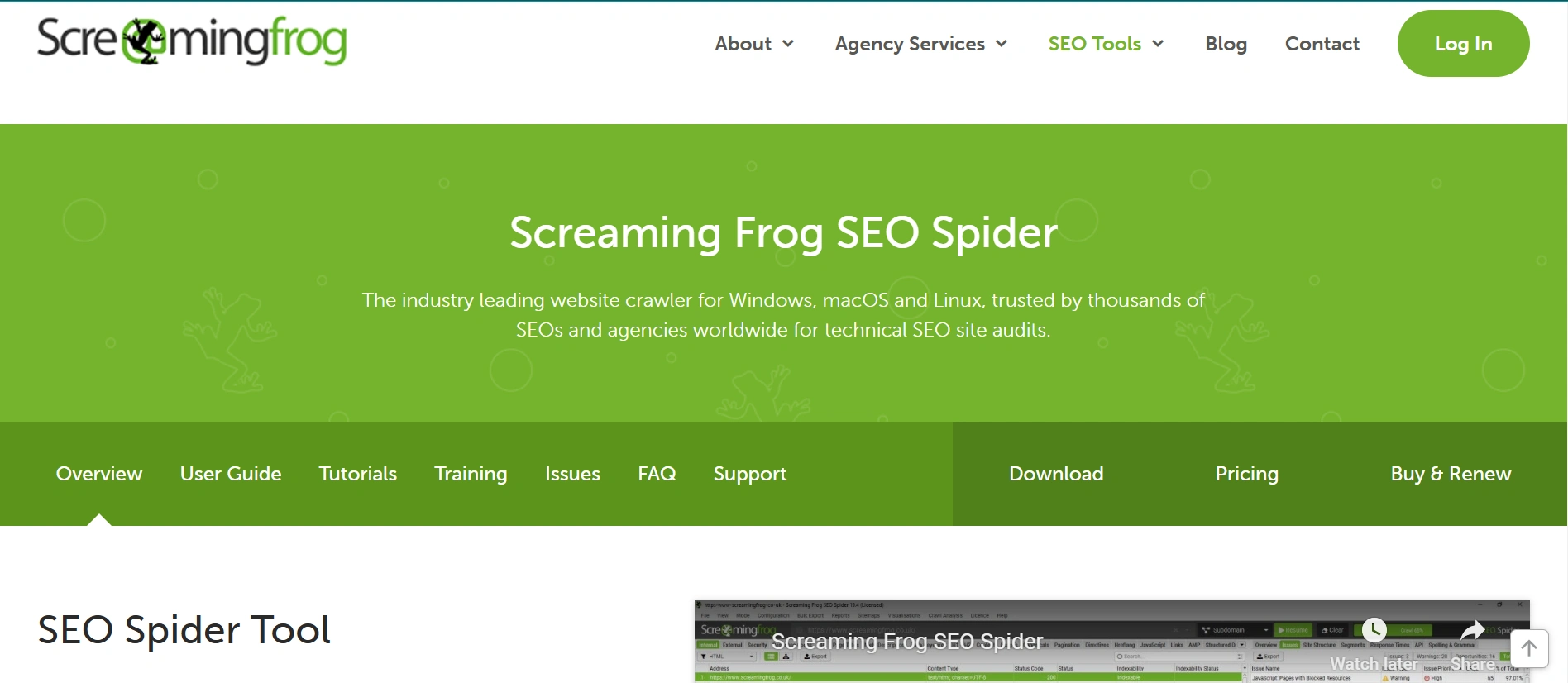
Screaming Frog is the tool that makes you feel like an actual SEO detective. It crawls your site just like Google does, exposing broken links, duplicate content, missing metadata, and other technical SEO nightmares. I once found dozens of broken internal links, fixing them gave my rankings an instant boost.
- Best for: Deep website audits and fixing SEO issues
- Pricing: Free for up to 500 URLs, then $259/year
Key Features and Benefits
- Powerful website crawler that helps uncover technical SEO issues
- Finds broken links, duplicate content, and missing metadata in minutes
- Analyzes site structure to improve crawlability and indexing
- Helps with large-scale SEO audits without needing a developer
- The free version is available for smaller sites, making it accessible to all
9. KWFinder – The Goldmine for Low-Competition Keywords
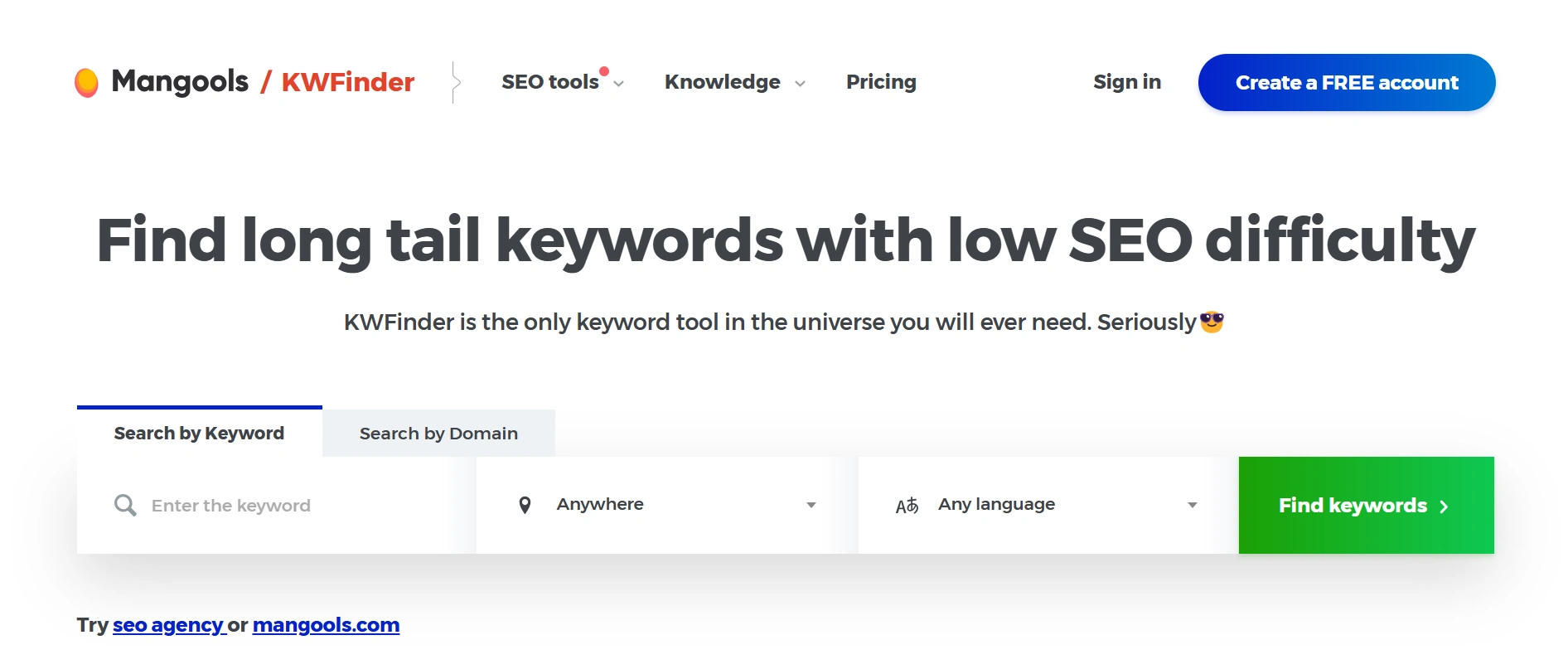
If you’re tired of battling for high-competition keywords, KWFinder is a game-changer. It specializes in uncovering low-competition, high-volume keywords making it perfect for newer affiliate sites or anyone looking for quick wins.
Instead of chasing terms dominated by big brands, KWFinder helps you find hidden opportunities. It shows keyword difficulty scores, search volume, and even competitor rankings, so you can target terms with real potential.
For sites just starting out, this can mean the difference between struggling for months and seeing traffic roll in much sooner. With the right keywords, you can rank faster, attract visitors, and start earning without going up against SEO giants.
- Best for: Finding keywords that are easy to rank for
- Pricing: Starts at $49/month
Key Features and Benefits
- User-friendly interface that simplifies keyword research for beginners and pros alike
- Accurate keyword data with reliable search volume, difficulty, and trend insights
- Competitor analysis to identify keywords competitors are ranking for and uncover new opportunities
- Location-specific results to target regional audiences and optimize local SEO
10. AnswerThePublic – Your Go-To Tool for Content Ideas
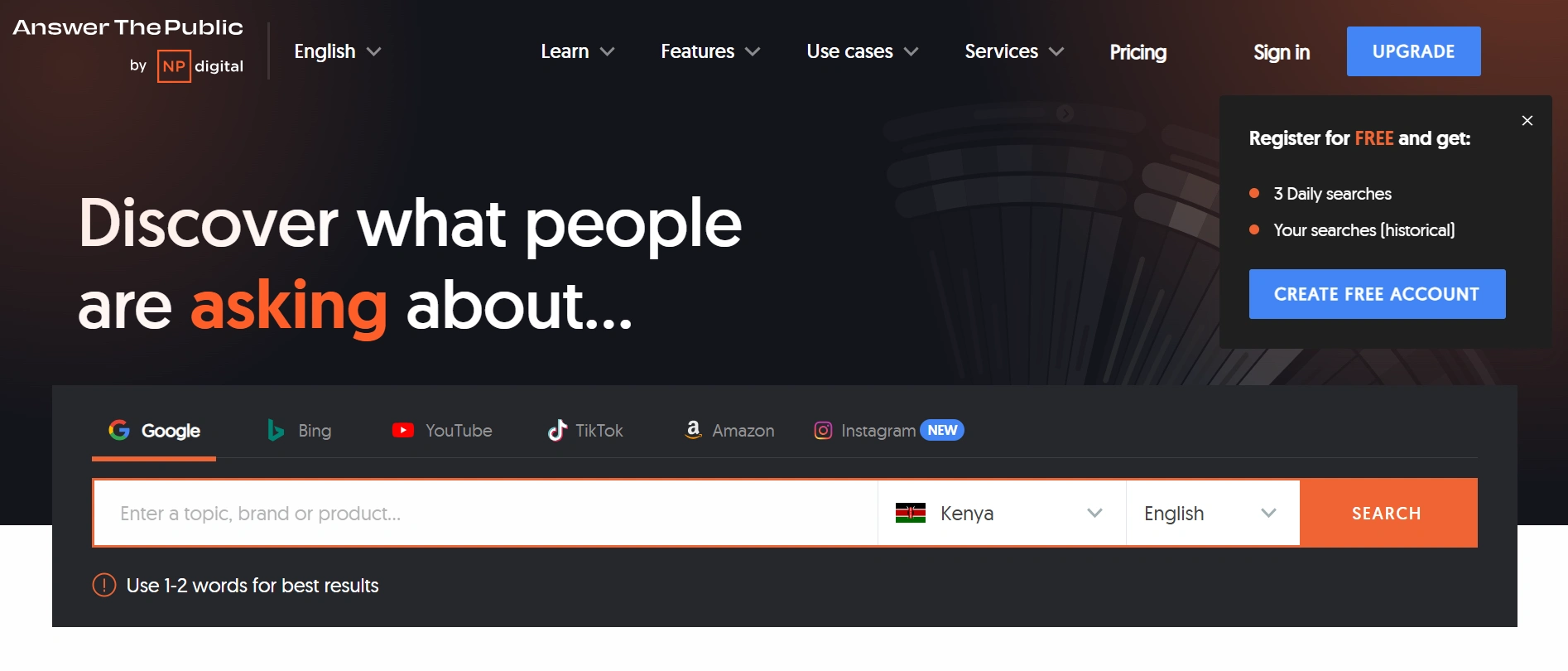
Writer’s block? AnswerThePublic is a lifesaver. Just enter a keyword, and it spits out hundreds of real questions people are asking online. I use it all the time to craft blog post ideas, FAQs, and even social media content.
- Best for: Brainstorming blog topics and long-tail keywords
- Pricing: Free (limited searches) or $99/month
Key Features and Benefits
- Visualized keyword research showing search queries in an easy-to-understand format
- Generates content ideas based on real questions people are asking on search engines
- Helps with SEO strategy by identifying long-tail keywords and common search patterns
- Free access to a limited number of searches, making it a great starting point for beginners
SEO tools make a big difference in rankings and earnings. The right ones save time and boost results. Test different options see what fits, and focus on what works. SEO takes effort but with the right tools, success is within reach. Keep optimizing, keep learning, and keep growing. Now go put these tools to work!
Tips for Choosing the Right SEO and Keyword Research Tool for Your Affiliate Marketing Business
With so many SEO tools out there, picking the right one can feel like trying to find a needle in a haystack. I know what it’s like; moving from tool to tool in search of a way to crack SEO.
Some tools were game-changers, while others just drained my budget. Therefore, this prompts the question: How do you go about selecting the right one for your affiliate marketing business? This is what I’ve learned.
1. Define Your SEO Goals First
Before you start comparing tools ask yourself.
If you need a tool that would discover keywords or analyze your competitors?
- What are you more focused on backlinks, on-page SEO, or content optimization?
- Would you mind having an all-in-one SEO suite and just a simple keyword finder?
If you want to outrank your competitors, you would better go with Ahrefs or SEMrush. KWFinder or Ubersuggest should suffice your needs in case all you need are low-competition keywords.
2. Check the Database Size and Accuracy by SFDC.
Not all tools use the same sources for pulling the data, either and some have far deeper databases.
- Ahrefs is famous for having the biggest backlink database.
- SEMrush is the best in offering the most comprehensive keyword insights.
- The direct insights from Google itself come from Google Search Console.
If you are a professional affiliate marketer, you should definitely need a tool with a great and accurate database.
3. Look for a Tool That Matches Your Budget
Get honest with yourself about what you can afford. SEO tools can be very expensive.
- Tight budget? Both freebies, Ubersuggest or Google Search Console are great starting points.
- Mid-range? KWFinder ($49 per month) offers affordable keyword research.
- Going all-in? Enterprise insights are given by Ahrefs or SEMrush (starting at $99 to $129 per month).
The best SEO tool is the one you actually use. If you’re just starting out, there’s no need to drop $100+ per month on features you won’t use.
4. Consider Ease of Use
There are tools that bludgeon you with walls of data; others make SEO seem simple and something that can be accomplished.
- Beginner-friendly? The user interface of Ubersuggest and KWFinder are clean and easy to use.
- Data-heavy but powerful? Ahrefs and SEMrush have a much steeper learning curve, yet tons of insights.
However, if you prefer a guided tool, choose the tool with an intuitive dashboard.
5. Do ensure your content needs will be covered.
Your SEO tool should work with your content strategy, not just spit out random keywords.
- Creating long-form content? The optimization of each detail will be assisted by the Surfer SEO.
- Need content ideas? AnswerThePublic shows real user searches.
- Want on-page SEO help? then go for Rank Math. It provides real-time suggestions.
SEO is not just about ranking; it’s about creating content that ranks and converts.
6. Prioritize Competitive Analysis Features
For affiliate marketers, it would be non-negotiable to spy on your competitors.
- If you want to see what’s working for others, you can see the type of advertisements on which the affiliate made the most commission. SEMrush and Ahrefs reveal competitors’ traffic sources, top pages, and backlinks.
- Need backlink opportunities? Among all, Ahrefs has the most detailed backlink analysis.
Why guess what works when you can reverse-engineer what’s already successful?
7. Try to find Trial Versions or Money-Back Guarantees.
Try out a tool first to test drive it before you commit.
- Ahrefs and SEMrush offer free trials for new users.
- Ubersuggest also has a free version but, it is limited to a small amount of searches.
- Google Search Console and AnswerThePublic are totally free.
On paper, a tool may look great, but you won’t never know if it is suitable for your workflow unless you gonna use it.
Finally, no single SEO tool is perfect; it all depends on your needs, budget, and level of experience. If you’re a beginner, start with free or low-cost options like Ubersuggest or Google Search Console. If you’re serious about dominating search rankings, SEMrush or Ahrefs will give you everything you need.
At the end of the day, SEO is a long game, and the right tool will make your journey faster, easier, and way more profitable.
Conclusion
When you select appropriate SEO tools, your efforts will transform significantly.
Honestly, you need to understand that effective SEO does not function through simple keyword addition to earn large sums of money. I wish it were that easy.
I used to waste countless hours in my initial stages of affiliate marketing by guessing while expecting my content to attain top positions. It didn’t work out. Immense frustration set in due to my useless attempts to engage with empty space.
The situation improved when I began using the correct professional tools. You gain more from smart strategies in SEO than from putting in more effort.
These aforementioned tools provide more than convenient software because they serve as a practical route to achievement.
Let KWFinder automate your keyword search for low-competition options. Surfer SEO directs your content creation process after you abandon the practice of writing without a strategy. Ahrefs, alongside SEMrush, will effectively reveal every secret your competition holds to explain their outranking of you.
Any tool operates with limits when it comes to completing all tasks alone. The right tools can simplify your life by ten times more than what you would achieve on your own by removing confusion and offering data clarity to establish effective strategic approaches.
Leaning toward SEO tools that are suitable to your stage of development will help speed up both your growth and earning potential both for new and established players.
So, what’s next? Using these tools should be your next action instead of simply reading about them. Select a tool to try and monitor how your rankings together with your earnings increase.
Frequently Asked Questions
Do I need to use multiple SEO tools, or is one enough?
It depends on your goals. No single tool does everything perfectly. Many affiliate marketers use a combination; Ahrefs or SEMrush for competitor research, Google Search Console for performance tracking, and Surfer SEO for content optimization. If you’re just starting, pick one that aligns with your immediate needs.
Are free SEO tools good enough for affiliate marketing?
Yes, but with limitations. Google Search Console, Ubersuggest (free version), and AnswerThePublic offer valuable insights, but they don’t have the depth of paid tools like Ahrefs or SEMrush. If you’re on a budget, start with free tools and upgrade as your business grows.
How do SEO tools help with affiliate earnings?
SEO tools help you rank higher on search engines, which means more traffic to your site. More targeted traffic leads to better conversions, and better conversions mean more commissions. Tools like KWFinder help find easy-to-rank keywords, while Rank Math ensures your content is optimized.
What’s the best SEO tool for beginners in affiliate marketing?
If you’re new, start with user-friendly tools like Ubersuggest or KWFinder for keyword research and Google Search Console for performance tracking. These are affordable (or free) and easy to navigate. As you scale, you can invest in premium tools like Ahrefs or SEMrush.
Are SEO tools a one-time investment or a recurring cost?
Most premium SEO tools operate on a subscription model, typically monthly or yearly. Some, like Screaming Frog, offer a one-time license for specific features. If SEO is a long-term strategy for you, investing in a good tool is worth it.
Can SEO tools replace manual SEO work?
Not entirely. SEO tools provide data, insights, and automation, but you still need to apply strategies, create content, and build backlinks. Think of these tools as assistants they save time and improve accuracy, but human input and strategy remain crucial.






